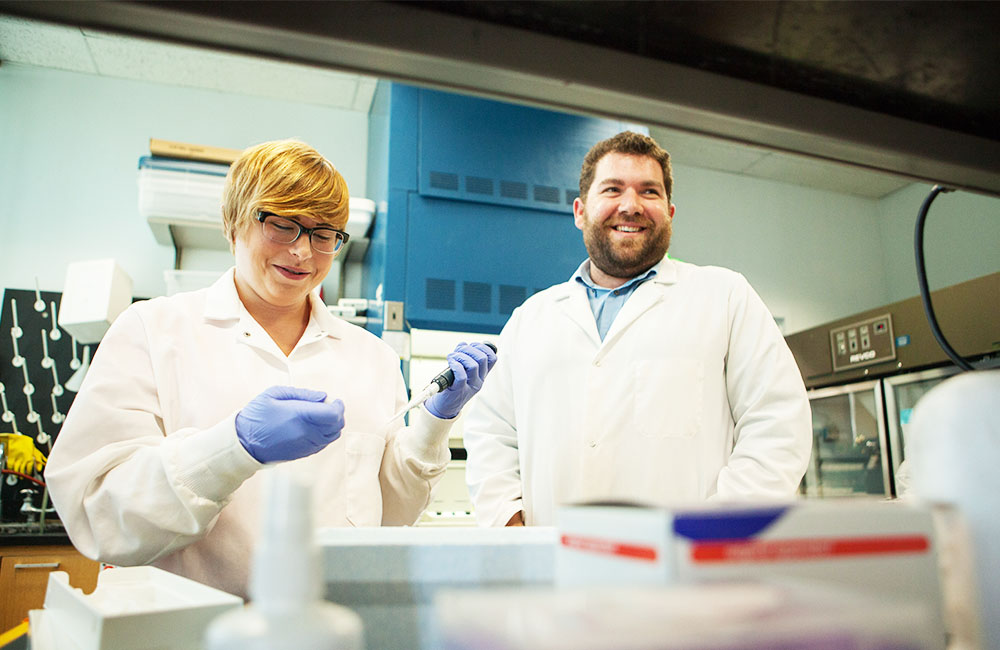Harvey Mudd Biology Students Publish Research
April 6, 2017
Associate Professor of Biology Dan Stoebel (pictured) and his colleagues, including Associate Professor of Biology Eliot Bush and seven Harvey Mudd students and alumni, have published a paper, “Genome-Wide Transcriptional Response to Varying RpoS Levels in Escherichia coli K-12,” in the American Society for Microbiology’s Journal of Bacteriology. Garrett Wong ’14, Alicia Schep ’11, Suzannah Beeler ’15, Lauren Shull ’14, Lakshmi Batachari ’18, Moira Dillon ’18, Carla Becker ’18, Ciaran Evans ’16 (POM) and Pomona College Professor of Mathematics Jo Hardin are co-authors on the paper, which is the culmination of research begun in the Stoebel lab in 2010.
The research covered in the paper explains how the E. coli global transcriptional regulator RpoS regulates the expression of genes according to the bacteria’s specific environment. Unlike larger organisms, which can make physical changes to adapt to environmental stressors (a human putting on a jacket when the temperature drops, for example), bacteria have to turn the expression of genes up or down to deal with environmental changes. The research project gives scientists a better understanding of how this system works.
One development revealed by this research is that RpoS, which was already known to be a mass regulator of stress responses in E. coli, in fact regulates about a quarter of the genes in the entire E. coli genome. Researchers also concluded that the level of RpoS the cell produces determines which genes are expressed and to what level. By isolating specific genes that tend to be associated with specific kinds of stress responses, researchers identified patterns that correlate with different environmental conditions. These patterns offer researchers the ability to make predictions about the effects; for example, for E. coli to be resistant to a highly acidic environment, it would have to produce much more RpoS than it would to survive starvation. In addition, they lend a new kind of insight into the basic mechanisms that cells use to coordinate how their genes are expressed.
As is usually the case with research of this kind, answers to some questions lead to new questions that spur new research projects. “Our next goal is to understand the consequences for the cell when some genes look one way and others look another way, and how we can understand why genes are expressed in one way or another. That’s really where this research is going,” says Stoebel.
Stoebel, who is on sabbatical during the 2016-2017 academic year, is also studying the evolution of this system in related species of bacteria. He looks forward to continuing his research with Harvey Mudd students beginning this fall.
